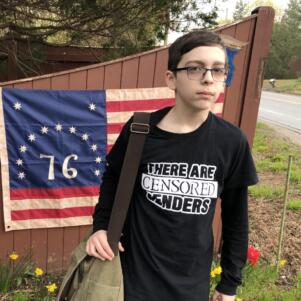Non-judge, jury, and executioner
By Kevin P. Martin | August 4, 2015, 1:00 EDT
 New England Patriots quarterback Tom Brady wipes the sweat from his head during an NFL football training camp in Foxborough, Mass., Thursday, July 30, 2015. (AP Photo/Charles Krupa)
New England Patriots quarterback Tom Brady wipes the sweat from his head during an NFL football training camp in Foxborough, Mass., Thursday, July 30, 2015. (AP Photo/Charles Krupa) NFL Commissioner Roger Goodell’s denial of Tom Brady’s appeal from his Deflategate suspension might never become a regular topic of study in our nation’s law schools. And whether Tom Brady takes the Patriots’ first snap this season won’t affect the legal system, apart from Boston lawyers holding tickets to those first few Patriots games.
But the Deflategate decision, with its talk of witness tampering and evidence destruction, does raise important questions about how non-judicial decisionmakers resolve issues normally decided by courts. These decisions can have life-altering consequences: whether people, like Brady, are allowed to work; whether they can attend college; even what they can say. Yet these decisions are often made without the due process guarantees or impartiality found in a court of law.
Take, for example, the role that college administrators play in adjudicating claims of campus sexual misconduct. The Obama administration, asserting that colleges are not doing enough to protect their female students, has pressured schools to more aggressively use campus disciplinary proceedings to expel students accused of date rape.
As a result, some campus tribunals are adjudicating claims of rape with no right to legal counsel, lax standards of admissible evidence, and no right to confront one’s accuser. The ultimate question—whether the accused is, in fact, a rapist—can be determined by a mere “preponderance of the evidence” (that is, on the basis of whether the decisionmaker believes that the accused is “more likely than not” guilty of the crime), as opposed to under the more rigorous “beyond a reasonable doubt” standard used in actual criminal proceedings.
The standards applied by academic administrators in adjudicating rape claims have deteriorated to the point that, last October, 28 members of the Harvard Law School faculty signed an open letter asking Harvard to provide more rights to the accused. The signatories were no troglodyte conservatives; they were well-known liberals, including Alan Dershowitz and Charles Ogletree, the latter a mentor to HLS alum Barack Obama.
NFL Commissioners and university bureaucrats are not the only non-judicial arbiters of individual rights. The Deflategate investigation and appeal also call to mind efforts, recently in the news, by Silicon Valley’s social networks to judge whether individuals’ social media posts satisfy the websites’ “community standards” policies.
Last week, a pro-military group claimed that Facebook had censored it for posts expressing sympathy with the victims of the Chattanooga terrorist attack. Snopes.com suggests that the particulars of that group’s complaints are misleading—the group’s page was suspended not for the Chattanooga post, but for posts offensive to African-Americans. But, either way, it is clear that Facebook suspended the group’s page because it disagreed with its content.
Facebook is a private company and can allow—or disallow—whatever content it chooses. But in the bigger picture this does raise concerns.
Many people these days learn their news from stories linked on Facebook, which provides a quick and easy means to spread stories virally. Certainly more of my friends click on links on Facebook than watch the network news or read dead-tree newspapers. And when did you last see a soapbox speaker in a “traditional public forum” such as a roadway or sidewalk? It’s for no small reason that NewBostonPost has a Facebook page of its own.
The First Amendment prevents the government from censoring the news, and government restrictions on speakers in traditional public fora must survive rigorous judicial review. Apart from restrictions on “fighting words” and (very narrowly-defined) “obscene” material, laws that discriminate against speech on the basis of content—no matter how offensive that content is to the public—face almost no chance of surviving in court.
No such standards apply to Facebook. The power that a handful of Facebook employees possess to shape the nation’s discourse is truly stunning.
Facebook’s own postings on the subject of its “community standards” policy say that the company will exercise its censor’s veto judiciously. Let’s hope so.
For to a degree inconceivable to the drafters of the First Amendment, the vigorous public debate on which our nation’s self-governance depends—of far more importance than a football game—is riding on the judgment of this non-government actor.
Contributing columnist Kevin P. Martin is a constitutional and regulatory law expert practicing in Boston. The views expressed in this column are his own and not those of his law firm.
Also from Kevin P. Martin:
The forgotten art of self-government










